As the founder at Nicole Metzger Law, I’ve seen firsthand how debt can weigh heavily on individuals and families. One of the most surprising and often overlooked consequences of settling a debt for less than you owe is the potential tax liability that can arise. Many people are unaware that when a creditor agrees to forgive a portion of your debt, the forgiven amount may be considered taxable income by the IRS. This can result in you receiving a 1099-C form at the end of the year, which can lead to an unexpected tax bill.
In this article, I want to explain what happens when you settle a debt, the tax implications of receiving a 1099-C, and how my firm can help you navigate these challenges.
What Happens When You Settle a Debt?
When you’re overwhelmed by debt, creditors may be willing to negotiate a settlement where you pay less than the full amount owed. For example, you might owe $10,000, but the creditor agrees to accept a lump-sum payment of $6,000, considering the debt settled. While this can provide immediate financial relief, it’s essential to understand that the IRS views the $4,000 forgiven by the creditor as taxable income.
The 1099-C Form: What Is It?
If a creditor cancels or forgives $600 or more of your debt, they are required to report the forgiven amount to the IRS, and you will receive a 1099-C form reflecting this amount. The IRS considers this forgiven debt as income because it represents money you were initially obligated to pay but are no longer required to. Essentially, the IRS views this as a financial gain, similar to receiving a bonus or an additional paycheck, and you may be required to pay taxes on the forgiven amount.
Are There Any Exceptions?
There are certain situations where forgiven debt may not be considered taxable income. Some of the most common exceptions include:
- Insolvency: If your total liabilities exceeded your assets at the time the debt was forgiven, you might be able to exclude some or all of the forgiven debt from your taxable income.
- Bankruptcy: If your debts were discharged through bankruptcy, the forgiven debt is generally not considered taxable income.
- Certain student loans: Some student loans that are forgiven under specific programs, such as Public Service Loan Forgiveness (PSLF), may not be considered taxable income.
These exceptions can be complex, and it’s crucial to consult with a tax professional or attorney to determine if you qualify.
The Impact on Your Taxes
The forgiven debt reported on a 1099-C form can have a significant impact on your taxes. If the amount is substantial, it could push you into a higher tax bracket, resulting in a larger tax bill than you might have anticipated. This can be especially challenging if you don’t have the funds to cover the additional taxes.
How Nicole Metzger Law Can Help
At Nicole Metzger Law, my team and I are dedicated to helping clients navigate the complexities of debt settlement and the associated tax implications. Our goal is to provide you with the guidance and support you need to make informed decisions about your financial future.
Debt Counseling and Management
One of the core services we offer is comprehensive debt counseling and management. We work closely with our clients to understand their financial situation and explore all available options. Whether it’s negotiating a settlement, understanding the potential tax consequences, or exploring alternatives, we are here to help you make the best decisions for your financial well-being.
Tax Implications and Legal Guidance
A key aspect of our service is helping clients understand the tax implications of debt settlement. We can assist in determining whether you qualify for any exceptions, such as insolvency, and help you gather the necessary documentation to support your case with the IRS.
The Importance of Legal Expertise in Debt Settlement
Debt settlement is not just about negotiating a lower payment; it’s about understanding the full range of consequences, including potential tax liabilities. Many people are caught off guard by the 1099-C form, leading to unexpected tax bills that can further strain their finances. That’s why it’s so important to have an experienced attorney guide you through the process.
At Nicole Metzger Law, we are here to help you weigh the pros and cons of debt settlement, ensure that any agreements you make are in your best interest, and help you navigate the potential tax implications. We can also explore alternative debt relief options that may be better suited to your financial situation, reducing the risk of future complications.
So What Should You Do?
Settling a debt for less than you owe can be a practical solution for managing overwhelming financial obligations, but it’s important to be aware of the potential tax consequences. The forgiven debt is considered taxable income by the IRS, and receiving a 1099-C form can lead to an unexpected tax bill. However, with the right legal guidance, you can navigate these challenges effectively.
At Nicole Metzger Law, we offer the experience and support you need to manage debt settlement and its tax implications. From debt counseling and management to legal representation, our team is here to help you make informed decisions and protect your financial future. Don’t let debt settlement lead to more financial stress—reach out to us today to ensure you’re fully prepared for the potential tax consequences.

